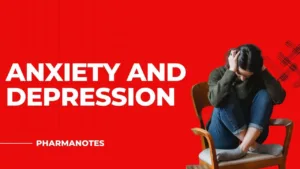Anxiety and Depression

What is Anxiety?
- Anxiety has biological/chemical, emotional, and spiritual components.
- Anxiety is the mind and body’s reaction to stressful, dangerous, or unfamiliar situations.
- It’s the sense of uneasiness, distress, or dread you feel before a significant event.
- A certain level of Anxiety helps us stay alert and aware, but for those suffering from an anxiety disorder, it feels far from normal – it can be completely debilitating.
- Is there a difference between Anxiety and Worry? Is it a sin to be anxious?
Common Signs and Symptoms of Anxiety
- Constant and persistent worry
- Edginess, nervous or jumpy
- Reluctance or refusal to go to school or other activities
- Agitation
- Restlessness
- Inattention, poor focus
- Somatic symptoms like headaches or stomachaches
- Avoidance
- Tantrums
- Crying
- Meltdowns before school about clothing, hair, shoes, socks or after school about homework
- Difficulties with transitions within school, and between school and an activity/sport
- Difficulty settling down for bed
- Having high expectations for school work, homework and sports performance
Different types of Anxieties
Phobias: When fears are Out of Control
Separation Anxiety: Fear of Being Away from Family Grown-Ups
Generalized Anxiety Disorder: Constant Worrying for Months at a Time
Obsessive-Compulsive Disorder: Thoughts and Actions You Just Can’t Stop
Post-Traumatic Stress Disorder: Stress and Fear from a Terrible Memory
What is Depression?
- Depression is persistent sadness.
- When it occurs, the Person feels alone, hopeless, helpless, and worthless.
- When this type of sadness is unending, it disrupts every part of the child’s life.
- Red Flags can include: child/teen acting out, isolating and no longer wanting to do the things they have enjoyed in the past, self-harming behaviors or comments about not wanting to live
- What to do about self-harm and/or suicidal thoughts – ALWAYS take this information seriously.
- Reach out to a professional for help, support and resources.
Common signs/symptoms of Depression
- Changes in appetite — either increased appetite or decreased
- Changes in sleep — sleeplessness or excessive sleep
- Continuous feelings of sadness or hopelessness
- Difficulty concentrating
- Fatigue and low energy
- Feelings of worthlessness or guilt
- Impaired thinking or concentration
- Increased sensitivity to rejection
- Irritability or anger
- Physical complaints (such as stomachaches or headaches) that do not respond to treatment
- Reduced ability to function during events and activities at home or with friends, in school or during extracurricular activities, or when involved with hobbies or other interests
- Social withdrawal
- Thoughts of death or suicide
- Vocal outbursts or crying
Anxiety and Depression Patient Behavior Change
- Are you noticing different patterns in behavior?
- Changes in eating/sleeping patterns.
- Withdrawing/isolating
- Reports of changed behavior by teachers, child care providers, friends and family
- Is your child/teen withdrawing and not willing to talk to you?
- Does your child/teen share that he or she is sad, lonely and/or worried?
- Have there been significant life changes or losses (moving, friendship loss, illness or injury, divorce or separation, death of a friend or family member)
- Has your child/teen been the victim of bullying?
Treatment for Anxiety and Depression in Children and Teens
- Counseling – specific approaches including Play therapy, TBRI, CBT, EMDR
- Relaxation training
- Medication/Supplements/Vitamins
- Psychological assessment/testing for specific disorders such as ADHD
Also, Visit: Pathophysiology Notes